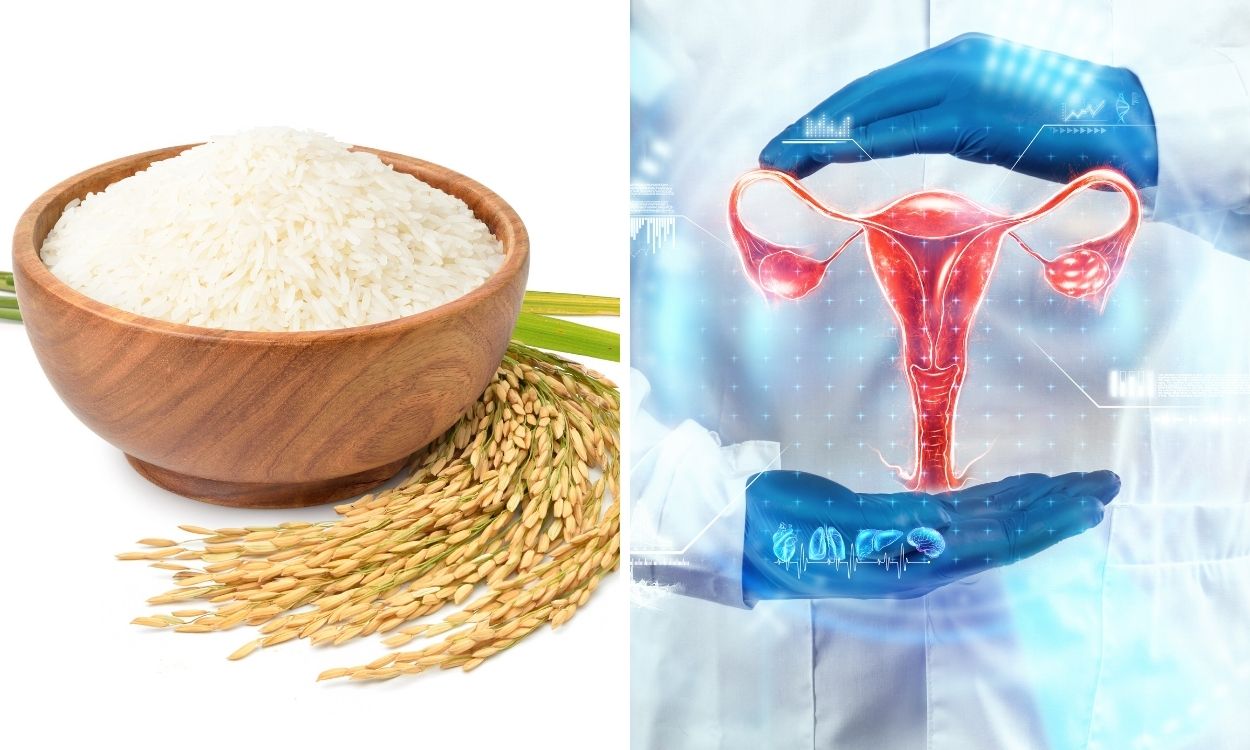Rice and PCOS Management: Insulin Regulation and Hormonal Balance
Polycystic Ovary Syndrome (PCOS) is a common hormonal disorder that affects women of reproductive age. It is characterized by the presence of multiple cysts in the ovaries, irregular menstrual cycles, and high levels of male hormones. PCOS can lead to a range of health problems, including infertility, diabetes, and heart disease. While there is no cure for PCOS, lifestyle changes, including diet and exercise, can help manage the symptoms.
One of the key factors in PCOS management is insulin regulation. Insulin is a hormone that regulates blood sugar levels. Women with PCOS often have insulin resistance, which means their bodies are less responsive to insulin. This can lead to high levels of insulin in the blood, which in turn can cause the ovaries to produce more male hormones. This can exacerbate the symptoms of PCOS.
Rice is a staple food in many parts of India, and it is often a major component of the diet. However, rice is also a high glycemic index (GI) food, which means it can cause a rapid increase in blood sugar levels. This can lead to insulin spikes and exacerbate insulin resistance in women with PCOS.
So, what can women with PCOS do to manage their rice intake? The key is to choose the right type of rice and to eat it in moderation. Brown rice is a better option than white rice because it has a lower GI and is higher in fiber. This means it is digested more slowly, which can help regulate blood sugar levels and reduce insulin spikes. Women with PCOS should also aim to eat smaller portions of rice and pair it with protein and vegetables to slow down the absorption of carbohydrates.
In addition to rice, women with PCOS should focus on eating a balanced diet that is rich in whole foods, including fruits, vegetables, whole grains, lean protein, and healthy fats. They should also aim to exercise regularly, as physical activity can help improve insulin sensitivity and regulate hormone levels.
Fitpaa is an end-to-end AI-driven metabolism monitoring and management technology that can help women with PCOS achieve their health and fitness goals. Fitpaa uses the latest state-of-the-art research in Lifestyle Medicine and Behavioral Therapy to strengthen all 11 organ systems and deliver guaranteed results. With Fitpaa, women with PCOS can take the Metabolism Assessment to identify the root cause of their health condition and get their personalized Fitpaa Capsule based on their metabolism, health & fitness goal, current lifestyle, and eating habits. The Fitpaa Capsule is a combination of medical therapy, medical exercise therapy, medical nutrition therapy, and cognitive behavior therapy that optimizes metabolism to help women achieve their health and fitness goals with a 100 percent guarantee. Fitpaa also provides real-time guidance technology that incorporates the concepts of habit building, timely nudging, and purpose-finding from cognitive behavioral therapy to deliver guaranteed results.
In conclusion, rice can be a part of a healthy diet for women with PCOS, but it is important to choose the right type of rice and eat it in moderation. Women with PCOS should focus on eating a balanced diet, exercising regularly, and managing their insulin levels to manage their symptoms. Fitpaa can help women with PCOS achieve their health and fitness goals with guaranteed results. Download the Fitpaa app today and take the first step towards a healthier, happier you.









